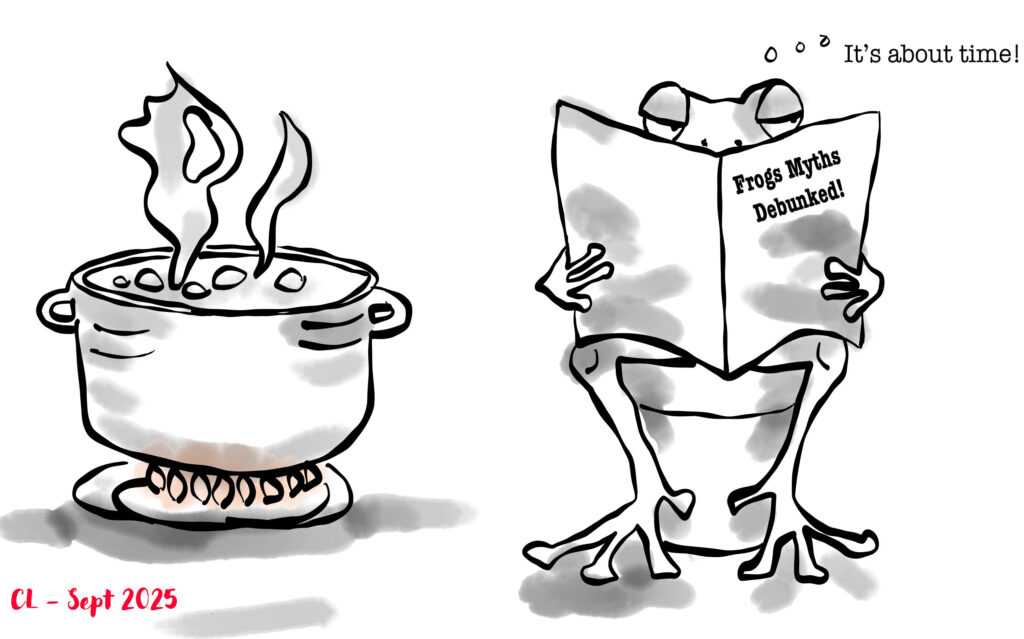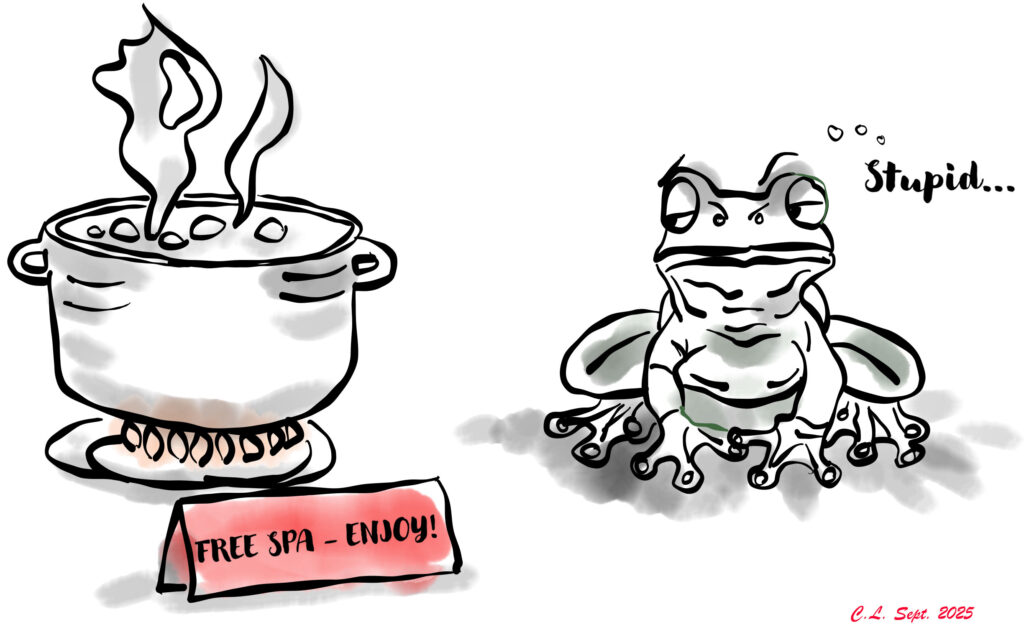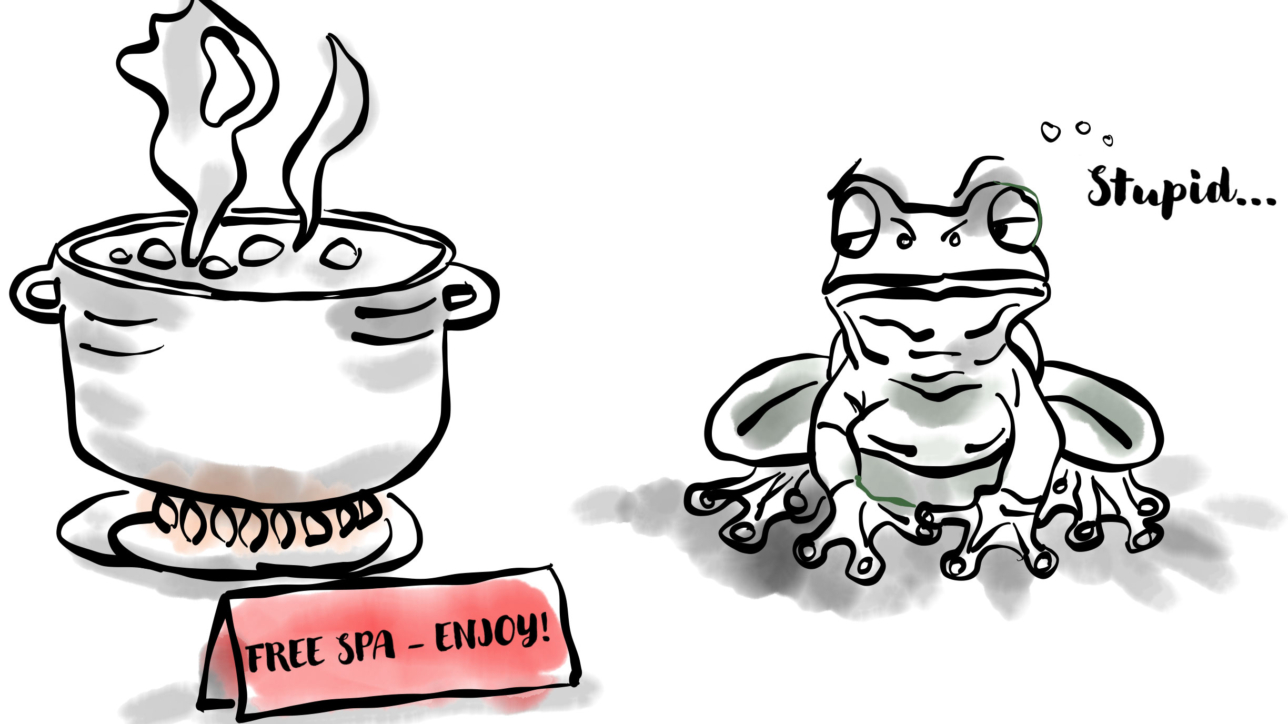The metaphor of ‘the frog in the boiling water’ illustrates the danger of being gradually desensitized to negative or deadly changes in our environment – and even worse to normalize them.
Recently, I was disappointed to learn that this commonly held belief is scientifically inaccurate: frogs do jump out of gradually heated water when it starts to get uncomfortably warm. Similarly, human beings hop out of their bathtub when the water gets too hot.
In Think Again, Adam Grant debunks the frog-in-the-boiling-water myth to call our attention to the so-called common knowledge we don’t question and encourages us to… think again.
Damn, it’s hard to let go of this compelling image that serves our innate need to watch for threats, especially the subtle ones our brains might miss!

In the field of organizational development, the frog parable was popularized by Peter Senge’s groundbreaking book, The Fifth Discipline, to illustrate one of the key “learning disabilities” preventing organizations from being truly adaptive learning organizations.
Companies are often good at responding to sudden crises -the equivalent of jumping out of boiling water- but frequently miss the slow, incremental threats that can prove even more dangerous.
Senge’s classic example: in the 1960s, the dominant American automobile industry dismissed Japanese cars as irrelevant with less than 4% market share. By 1989, that figure had reached 30%.
Senge’s prescription remains vital: to avoid the frog’s fate, we must slow down and pay equal attention to subtle shifts as well as to the dramatic ones.
The boiling-frog metaphor may be biologically flawed, but psychologically and socially, the principle holds true.
Last week, I heard a seasoned journalist invoking the adage for comprehending our current political climate: democratic boundaries seem to be crossed one after another, books like Maus or Anne Frank’s Diary quietly removed from district to district, regulatory agencies slowly hollowed out by budget cuts – our societal guardrails eroding progressively.

Perhaps the flawed boiling-frog metaphor persists in our shared imagery because it raises important and very real questions about power abuse, thresholds and agency: How do we sound the alarm about gradual threats without being dismissed as alarmist? How do we help others recognize danger they cannot see? What do we do when we—or others—lack the strength and vision to escape difficult situations?
When I was pregnant and about to deliver at home, we had set up a hot tub in a room to ease my labor pains. When contractions started, I went into the hot water, hoping to relax but instead started to slowly lose my energy. I was softening in the hot water. I didn’t think that I needed to jump out of it, until I didn’t have the strength anymore to do it. Thankfully, JP made the executive decision to drag me out of the tub before I was cooked and sat me down on the toilet where I regained my strength and finished the job of delivering our baby.
The debunked metaphor of the boiling-frog is not about triumphant human agency but offers a humbler conclusion: we don’t always recognize danger, we don’t always have strength to act, but we do have each other to watch out for us.







